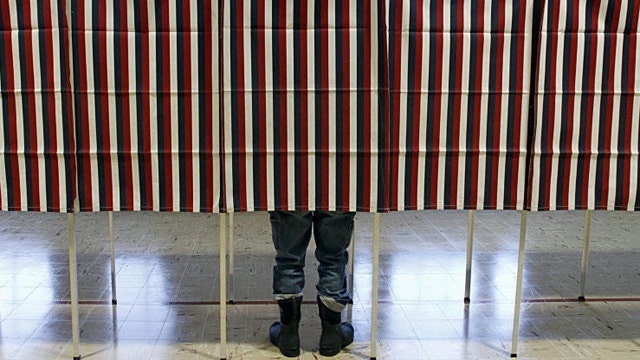WASHINGTON – They say the only two things that are certain in life are death and taxes. President Barack Obama wants to add one more: voting.
Obama floated the idea of mandatory voting in the U.S. while speaking to a civic group in Cleveland on Wednesday. Asked about the influence of money in U.S. elections, Obama digressed into the topic of voting rights and said the U.S. should be making it easier for people to vote.
Just ask Australia, where citizens have no choice but to vote, the president said.
"If everybody voted, then it would completely change the political map in this country," Obama said, calling it "potentially transformative." Not only that, Obama said, but universal voting would "counteract money more than anything."
Disproportionately, Americans who skip the polls on Election Day are younger, lower-income and more likely to be immigrants or minorities, Obama said. "There's a reason why some folks try to keep them away from the polls," he said in a veiled reference to voter identification laws in a number of states.
Less than 37 percent of eligible voters cast ballots in the 2014 midterms, according to the United States Election Project. And a Pew Research Center study found that those avoiding the polls in 2014 tended to be younger, poorer, less educated and more racially diverse.
At least two dozen countries have some form of compulsory voting, including Belgium, Brazil and Argentina. In many systems, absconders must provide a valid excuse or face a fine, although a few countries have laws on the books that allow for potential imprisonment.
At issue, Obama said, is the sway that those with money can have on U.S. elections, where low overall turnout often gives an advantage to the party best able to turn out its base. Obama has opposed Citizens United and other court rulings that cleared the way for super PACs and unlimited campaign spending, but embraced such groups in his 2012 re-election campaign out of fear he'd be outspent.
Obama said he thought it would be "fun" for the U.S. to consider amending the Constitution to change the role that money plays in the electoral system. But don't hold your breath.
"Realistically, given the requirements of that process, that would be a long-term proposition," he said.













































